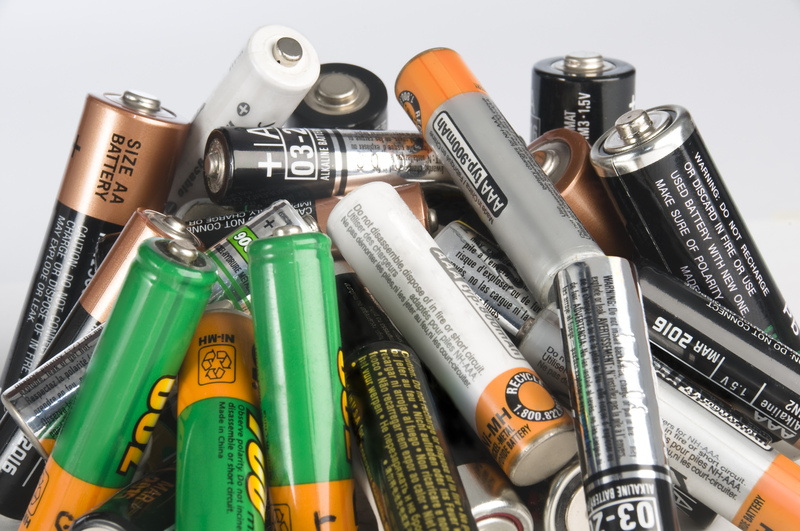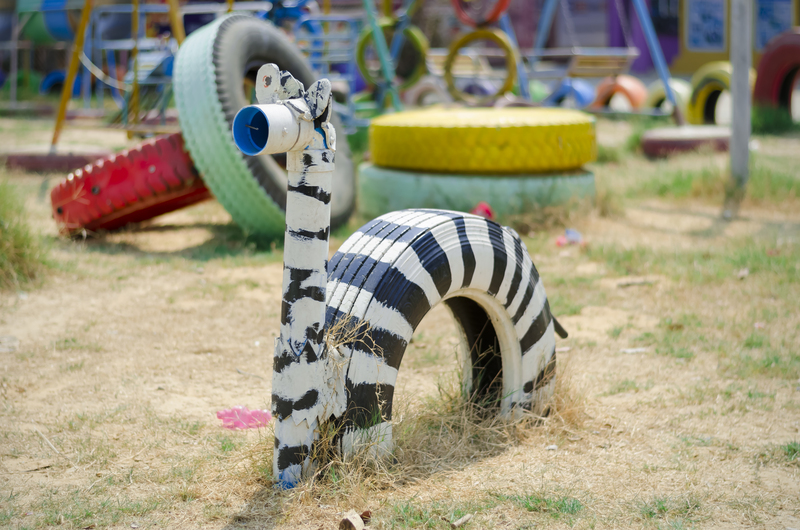How Small Habits Can Lead to Better PPE Waste Disposal
The rise in the use of personal protective equipment (PPE) during global health crises, such as the COVID-19 pandemic, has brought a new environmental challenge: PPE waste. Discarded face masks, gloves, and gowns have become common sights on sidewalks, beaches, and landfills worldwide. While the environmental impact of PPE waste cannot be overlooked, individuals can make a tangible difference through small daily habits. In this comprehensive guide, we will explore how changing a few routines can transform personal protective equipment waste management and foster a cleaner, healthier planet.

Understanding the Challenge of PPE Waste Disposal
Over the last few years, PPE has been vital in safeguarding our health. However, the surge in single-use equipment has led to an unprecedented increase in disposable PPE waste. According to a United Nations Environment Programme report, an estimated 75% of used masks, gloves, and other pandemic-related waste will end up in landfills or floating in our seas. This not only risks wildlife but also contributes to microplastic pollution.
Why PPE Waste is Different
- Contamination Risk: Worn PPE can be contaminated with harmful pathogens, which makes its disposal trickier than regular waste.
- Non-Biodegradability: Most PPE items contain plastics that do not decompose for hundreds of years.
- Sheer Volume: Daily global usage runs into billions, overwhelming waste management systems.
The Power of Small Habits in PPE Waste Management
While the scale of PPE waste disposal seems daunting, sustainable change starts with individuals. Small daily habits can have a ripple effect, leading to improved PPE waste handling on a larger scale. Here's how.
1. Segregate PPE Waste at Source
Segregation is the cornerstone of effective waste management. By making it a habit to dispose of PPE in dedicated bins, individuals can significantly reduce contamination risks.
- Assign a clearly marked bin for used masks, gloves, and face shields.
- Train family members or coworkers to recognize and use PPE waste bins.
- Place these bins in accessible, high-traffic areas to encourage compliance.
Result: Proper segregation ensures PPE waste is not mixed with recyclables or general trash, making it easier for waste handlers to manage.
2. Reduce Unnecessary PPE Usage
One simple habit is evaluating real need before donning single-use PPE. For many daily tasks, reusable masks or gloves may suffice.
- Switch to fabric masks where appropriate and sanitize them after each use.
- Use reusable gloves for chores that do not pose health risks.
- Educate yourself about recommended PPE for various environments to avoid overuse.
This mindful approach directly minimizes the amount of personal protective equipment waste created in the first place.
3. Cut and Fold Before Disposal
One major wildlife hazard occurs when animals become entangled in discarded masks and gloves. A small but meaningful habit is to snip the ear loops and fold or roll used PPE before throwing it away.
- Keep a pair of scissors at your waste station for easy access.
- Show children how to responsibly prepare used PPE for disposal.
- Encourage others in your community to adopt this habit.
These few extra seconds can make PPE waste disposal significantly safer for animals and reduce litter dispersal.
4. Opt for Biodegradable PPE When Possible
The market now offers eco-friendly PPE options made from biodegradable or compostable materials. By supporting these alternatives, you not only protect yourself but also contribute to a more sustainable waste disposal cycle.
- Purchase biodegradable masks for daily errands or errands that allow for lower protective levels.
- Support companies and organizations investing in green PPE technology.
- Encourage your workplace or community center to trial compostable PPE.
Small choices in buying greener alternatives leave a lasting impact on the planet's health.
5. Follow Local PPE Waste Guidelines
Municipalities around the world have rolled out guidance for PPE waste disposal during outbreaks. Adhering to these protocols is an essential small habit.
- Familiarize yourself with local waste management rules regarding contaminated waste.
- Use recommended bags or containers (often red or labeled "hazardous") for used PPE.
- Never flush masks or gloves down toilets, as they clog pipes and endanger aquatic ecosystems.
This not only protects waste workers but also maintains sanitation standards in your area.
The Environmental Impact of Better PPE Waste Habits
Every individual's prudent actions multiply to create a substantial collective impact. Here's how small but repeated practices significantly improve PPE waste disposal management:
- Reduced Pollution: Lower volumes of PPE waste reaching open environments means fewer plastics and toxins in nature.
- Protection for Wildlife: Properly prepared and contained PPE waste is less likely to harm animals.
- Safer Communities: Segregated and properly bagged waste lowers the infection risk for sanitation workers and the public.
- Resource Conservation: Reduced reliance on single-use PPE conserves raw materials and minimizes landfill burden.
Did you know? One small habit--like carrying a reusable, washable mask--can prevent hundreds of disposable masks from entering the waste stream each year.
Encouraging a Community Approach to PPE Waste
Amplifying the effect of small habits requires community participation. Individuals who share their knowledge and model responsible PPE disposal behaviors inspire others. Here's how you can lead local change:
Start Local Campaigns
- Organize neighborhood cleanups targeting PPE litter hotspots.
- Distribute flyers or create social media posts about safe PPE disposal.
- Set up public PPE waste bins with clear signage at community centers and parks.
Educate Through Example
- Teach children at home and in schools about the steps of safe PPE disposal.
- Encourage businesses to train employees on proper handling and sorting.
- Share success stories on local forums and community boards.
These grassroots efforts help turn simple personal actions into shared community standards for effective PPE waste disposal.
Innovations and Solutions for Better PPE Waste Management
Technology and innovation play a crucial role in advancing personal protective equipment waste disposal. Here are some methods complementing individual efforts:
- PPE Recycling Initiatives: Organizations are piloting dedicated programs to recycle used masks and gloves into construction materials or energy.
- Biodegradable PPE Development: Research is ongoing to make masks and gloves from materials like plant fibers or natural rubber, which break down quickly when discarded.
- Improved Waste Collection Systems: Smart bins and sensor-equipped containers alert when full, optimizing collection routes and reducing overflow.
By staying informed about new developments and supporting such initiatives, individuals help shape a future where personal protective equipment waste is managed efficiently and sustainably.
Practical Tips: Building Better PPE Disposal Habits
Turning knowledge into action requires clear, consistent routines. Here are simple daily tips to foster better PPE waste disposal habits:
- Place Separate Bins: Have a distinct PPE waste bin at home, work, and public places you frequent.
- Stick Reminders: Use signage or stickers to remind others (and yourself) to dispose of PPE properly.
- Prepare a 'Waste Kit': Carry a sealable bag while you're out to safely store used masks or gloves until you find a proper bin.
- Stay Updated: Follow updates from local health and waste agencies about disposal practices and changes.
- Advocate for Change: Talk to your employer, school, or community leaders about providing more PPE bins and adopting green alternatives.
With these easy steps, you contribute every day to a safer, cleaner environment.

The Role of Policy in Supporting Small Habits
While individuals drive change from the ground up, supportive policies from governments and organizations help reinforce responsible PPE waste disposal. Initiatives can include:
- Mandating clear labeling on PPE products for disposal guidance
- Subsidizing eco-friendly PPE alternatives for the public
- Providing better PPE collection and disposal infrastructure in cities and towns
- Launching educational campaigns that highlight the environmental impact of improper PPE disposal
When personal effort aligns with strong policy measures, the result is a robust, sustainable PPE waste management system.
Conclusion: Every Habit Counts in Personal Protective Equipment Waste Management
In summary, addressing the global issue of PPE waste doesn't always require sweeping reforms--it starts with small but powerful personal habits. Whether it's cutting mask ear loops, choosing biodegradable PPE, or consistently using the right bin, these actions accumulate into substantial, positive change. Collectively, our habits influence not just our immediate environment but set the standard for households, workplaces, and communities.
As we adapt to new norms in health and safety, let's continue to refine how we manage personal protective equipment waste. By making thoughtful choices every day, we can ensure that the vital gear protecting us does not become a threat to our planet.
Take action today - embrace new habits, share your knowledge, and help lead the way in responsible PPE waste disposal.
